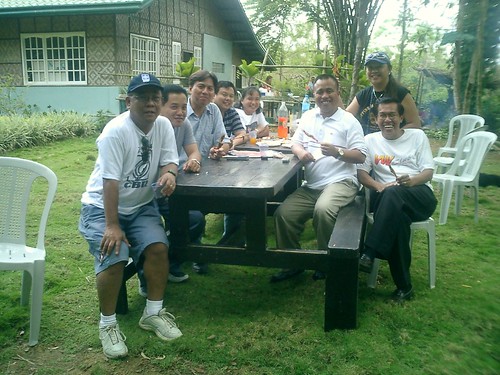Editorial : Great achievers

It was in 1905 when La Asociacion Feminista Filipina was founded, with very specific objectives: prison reform, particularly on behalf of women and minors; visits to factories and shops employing women and minors, in order to recommend labor reforms; educational reforms; anti-vice drives mainly aimed against prostitution, gambling and drinking; religious-oriented campaigns in schools; and establishing healthy recreation facilities for families. Accompanying their efforts was the creation of organizations, such as the Gota de Leche, to promote scientific nutrition and natal care. The many women's clubs we know today began to be formed at around the same time.
Women's groups were at the forefront of the campaign to secure the right to vote for women that began in earnest in 1918, with bills filed in the Philippine legislature. (During the hearings, Concepcion Felix Rodriguez, Pura Villanueva Kalaw, Rosa Sevilla Alvero, Rosario Lam, Encarnacion Alzona and Natividad Almeda Lopez -- all names honored today by Philippine women's groups -- spoke.) In 1920, a concerted effort was made to make the women's suffrage movement nationwide and by the next year, the National Federation of Women's Clubs was established, its campaign given voice by Women's Outlook edited by Trinidad Fernandez Legarda in English and Purita V. Kalaw in Spanish. That same year, women joined the independence movement with the organization of the National League of Filipino Women by Dr. Maria Paz Mendoza Guanzon.
These efforts bore fruit when a law was finally passed by the Philippine legislature in 1933 extending suffrage to women. It was, however, superseded with the establishment of the Philippine Commonwealth. Women again had to lobby for their right to vote during the deliberations of the Constitutional Convention. The National Federation of Women's Clubs created the General Council of Women, led by Pilar Hidalgo Lim and Josefa Llanes Escoda, to make sure a provision in the 1935 Constitution would permit women's suffrage. The Constitution instead required that the women vote either for or against granting themselves the right to vote, and so a law was passed in 1936 setting the date for a plebiscite.
Women who were campaigning for the right to vote again organized themselves in order to overwhelmingly approve suffrage for themselves. Half a million Filipinas across the nation registered for the plebiscite, and 447,725 voted yes.
On Sept. 15, 1937, suffrage was formally extended to women over the age of 21. And in all our constitutions since then, suffrage has been considered a right of all Filipinos, regardless of sex. (The significance of the Filipino women's struggle and its success perhaps can be better appreciated if one considers that women in France gained the right to vote only after World War II.)
The political gains were immediate. In November 1937, two months after women gained the right to vote, Carmen Planas was elected as member of the city council of Manila, along with three lady members of provincial boards, two mayors, 13 vice mayors and 306 municipal councilors. In 1940, the number of women elected to office reached 800, led by the first congresswoman to sit in the National Assembly: Elisa R. Ochoa of Misamis Occidental. The first congresswomen of the Republic were Remedios Ozamiz Fortich of Bukidnon in 1946, Medina Lacson de Leon of Bataan in 1949, and Carmen Dinglasan Consing in 1953. The first senator of the Republic was Geronima Pecson who was elected in 1947. Asuncion Perez, as social welfare administrator during the time of President Manuel Roxas, was the first woman to hold Cabinet rank. In the judiciary, Natividad Almeda Lopez became the first woman judge and the first woman associate justice of the Court of Appeals, while Cecilia Muñoz Palma became the first woman associate justice of the Supreme Court.
One hundred years after they began their struggle, it is only fitting to remember with gratitude the many great Filipino women whose efforts then, as now, have enabled other women, like Yorac, to play a big, positive role in our national life.







1 comment:
Post a Comment